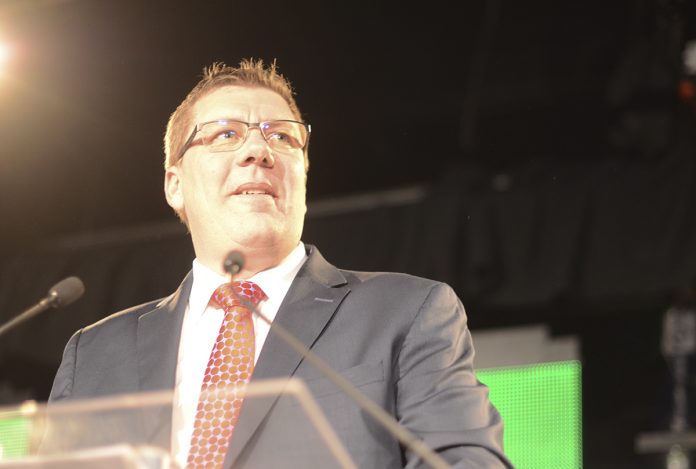
Moe, Duncan and Morgan confident challenge will succeed, argue carbon tax not effective
After months of threatening legal action, the province is challenging the federally imposed carbon tax in court.
The Government of Saskatchewan launched a constitutional reference case in the Saskatchewan Court of Appeal Wednesday, to challenge Ottawa’s ability to impose a carbon tax on the province. The province is asking the Saskatchewan Court of Appeal to answer a question on the constitutionality of the legislation used by Justin Trudeau’s Liberal government to impose the carbon tax.
The question reads:
“The Greenhouse Gas Pollution Pricing Act was introduced into Parliament on March 28, 2018 as Part 5 of Bill C-74. If enacted, will this Act be unconstitutional in whole or in part?”
“We do not believe the federal government has the constitutional right to impose the Trudeau carbon tax on Saskatchewan, against the wishes of the government and people of Saskatchewan,” Premier Scott Moe said in a press release.
“We have a made-in-Saskatchewan plan to reduce emissions and fight climate change, and that plan does not include a job-killing carbon tax on Saskatchewan families.”
The province’s constitutional lawyers believe federal legislation can be challenged because it imposes a carbon tax on some provinces, but not others, based on how each province has chosen to exercise its own legislative jurisdiction.
In a press conference held Wednesday morning, Moe compared it to setting a sales tax, and charging Alberta an extra five per cent to make up for their lack of PST.
Moe also stressed that talking about carbon taxes is the wrong conversation to have.
“The challenge is we are an export-based economy, and it puts us at a severe competitive disadvantage,” he said. “This is the wrong conversation, taxing our industries that are more sustainable compared to similar ones around the world.”
Environment Minister Dustin Duncan agreed.
“If this is really about emissions, Saskatchewan has put forward a very credible plan,” he said.
“The federal government has to answer whether this is about emissions, or whether this is about a tax.”
Moe said the federal government is treating different provinces differently, and that goes beyond what it is constitutionally allowed to do. He said the government’s case is strong, and if unsuccessful, they would not hesitate to appeal to the Supreme Court of Canada.
“This runs contrary to the principle of federalism, which is one of the bedrocks of our constitutional division of powers, because it fails to respect the sovereignty and autonomy of the provinces with respect to matters under their jurisdiction,” said Justice Minister Don Morgan. “Simply put, we do not believe the federal government has the right to impose a tax on one province but not others just because they don’t like our climate change plan.”
According to the press release, under the constitution, each level of government is sovereign within its own realm. Provinces have the authority to set policy in areas of provincial jurisdiction, and the federal government does not have the right to override that authority.
The two ministers and Premier Moe also argued a carbon tax isn’t actually effective at reducing emissions, and doesn’t take into account Saskatchewan’s properties as a natural carbon sink.
“The federal government has not been able to demonstrate what the carbon tax will do to reduce emissions,” Duncan said.
“If the point of a carbon tax is to change behaviour, then their own documents suggest the price isn’t high enough. (Our plan) will achieve better results than the federal government, but we have not heard why that would not be acceptable. Our crop land alone sequesters 12 million tonnes of carbon a year.”
Duncan said the overall carbon sink effect is even greater than that 12 million tonnes, as that number doesn’t include prairie grasslands or forests.
‘If this is about science, you have to take into account the full picture,” Duncan said, “And the carbon tax doesn’t do that.”
While the federal government has said it will also withhold infrastructure funding related to climate change if Saskatchewan doesn’t sign on to the carbon tax, Moe said the province will still apply for the funds.
“We’re still going to apply, because we are still part of this great nation,” Moe said.
Duncan said the province will apply with several initiatives aimed at reducing emissions.
“Let the federal government answer the question as to why we wouldn’t get the money if it would actually reduce emissions,” he said.

